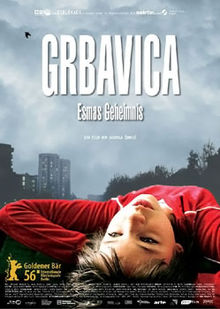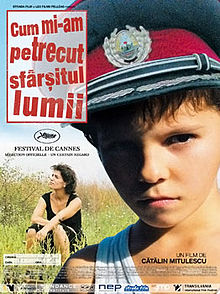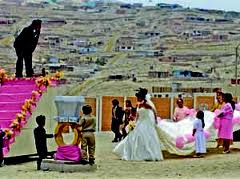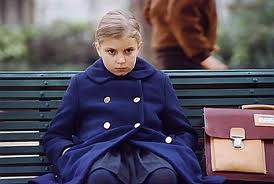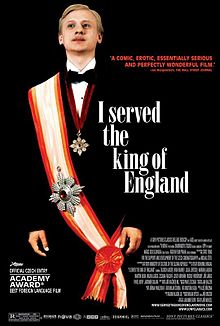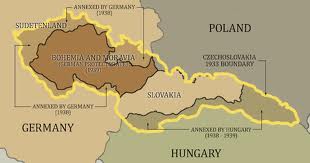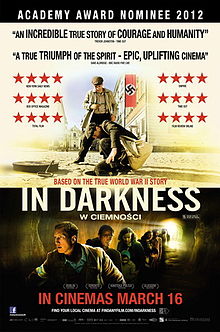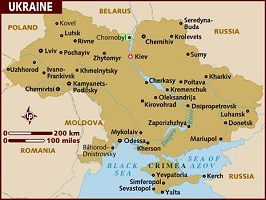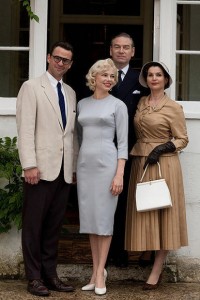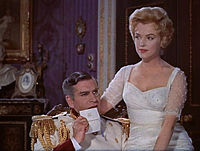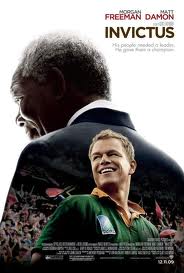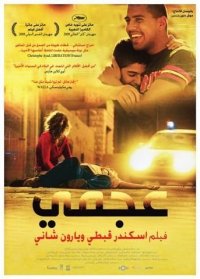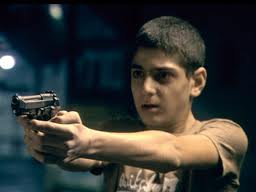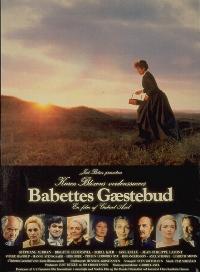 I watched two very similar movies in succession recently: Babette’s Feast and Ladies in Lavender. Babette’s Feast depicts a 50-year-span around the time of the Paris Commune of 1871, while Ladies in Lavender is set in Great Britain in 1936. I thought Ladies in Lavender was borrowing ideas from the very successful Babette’s Feast because the Ladies in Lavender movie was made about 20 years after the movie Babette’s Feast, and the essence of the times depicted and the overall feeling of these two movies were very similar. The impression I got from these two movies was that they depict the atmosphere of the early 20th century in Northern Europe.
I watched two very similar movies in succession recently: Babette’s Feast and Ladies in Lavender. Babette’s Feast depicts a 50-year-span around the time of the Paris Commune of 1871, while Ladies in Lavender is set in Great Britain in 1936. I thought Ladies in Lavender was borrowing ideas from the very successful Babette’s Feast because the Ladies in Lavender movie was made about 20 years after the movie Babette’s Feast, and the essence of the times depicted and the overall feeling of these two movies were very similar. The impression I got from these two movies was that they depict the atmosphere of the early 20th century in Northern Europe.
After doing some background research, I found that the author of the original Babette’s Feast, Karen Blixen, was born in 1885 and passed away in 1962, while the author of the original Ladies in Lavender, William John Locke, was born in 1863 and passed away in 1930. While I wouldn’t say they are the same generation, the time that they were alive overlapped. This explains why they share similar perceptions. The original Ladies in Lavender was published in 1916, slightly earlier than when the original Babette’s Feast was published, and the Ladies in Lavender movie actually changes the setting to 20 years later than the original story. Basically, the atmosphere that is expressed by both movies is the mindset of the people in Europe during those good times; imperialism was still going strong in Europe before World War I, people were enjoying economic prosperity, the rural parts of Northern Europe were not engulfed by big political changes, and the sense of community between neighbors was still strong and people helped each other in good faith. I think both Karen Blixen and William John Locke had the feeling that such times would disappear in the near future because both of these movies seem to give an impression of fleeting times. Since I have not read the original pieces, I wish to write about the similarities and differences between the two movies.
The first similarity between these movies is that both are stories of elderly, unmarried sisters living in the same house after their father dies. The two live in a beautiful, tiny village along the North Sea. Babette’s Feast takes place in Jutland, Denmark, while Ladies in Lavender is located in the United Kingdom, but the scenery in both movies look very similar. The maid similarly goes down the hill every day with a shopping basket to buy fish from the fisherman who rides up to the beach in his boat. There is also a similar set-up where life for the sisters is very repetitive—cherishing the memories of their fathers and thankful for their peaceful life—but then a lonesome, artistic foreigner drifts into their lives (in Babette’s Feast, it is Babette, a female chef of a first-class Paris restaurant; in Ladies in Lavender, it is Andrea, a mysterious Polish prodigy violinist) and their lives suddenly become exciting, which causes the sisters to reflect on their nearly forgotten younger days.
A similarity between the authors is that Karen Blixen and William John Locke both lived a long time in Africa. William John Locke is British, but when he was 2 years old, he immigrated to Trinidad and Tobago; in 1881, he returned to his home country of the United Kingdom to attend the University of Cambridge. On the other hand, Karen Blixen is Danish, but in 1913, she married Bror von Blixen, a Swedish aristocrat related to her father’s side of the family, and they immigrated to Kenya the following year. As a married couple, they managed a coffee plantation, but the married life soon failed and ended in a divorce; in 1931, Karen returned to her home country of Denmark. The memoir she wrote of her time living in Africa, Out of Africa, was made into a movie and won the Academy Award for Best Picture. Babette’s Feast won the Academy Award for Best Foreign Language Film.
So then what are the differences? Since I have not read the originals, I can only compare the movie renditions, and one difference is the way the two sisters reflect on their pasts. In Babette’s Feast, the sisters do not have regret in their hearts about their past at all. There were many men who fell in love with the sisters because they were beautiful, but the sisters are still unmarried because they helped their father who had started up a church in the village, and they and all of the church-goers grew old; the sisters had made up their minds to maintain the church until they died. The sisters have no trace of avarice and don’t seek luxury, and the warm spirits of the men who fell in love with the sisters seem to be protecting them near the end of their lives. Babette, who lost all of her family when they were killed during the Paris Commune, was sent to Denmark from Paris by a man who had loved one of the sisters. Babette is thankful to be able to live with the sisters, and wants to be with the sisters until they die. Babette’s Feast depicts the calm happiness someone with a faithful heart and without greed can achieve.
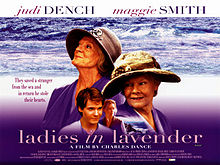 In contrast, Ladies in Lavender is a story of the younger of the two elderly sisters recognizing her hidden desire for men due to the young, charming man who drifts in. The young man has feelings of gratitude for the elderly ladies who helped him when he was dying on the beach, and loves the old ladies like he loves his mother, but in the end, he carries feelings of romantic love for a woman young like himself and cannot stay in the countryside because of his ambitions for his career. The younger sister laments, “He is unobtainable. Life is unfair!!” Although others may view the feelings of this elderly lady as humorous and off-putting, from her point of view, her feelings are serious and noble.
In contrast, Ladies in Lavender is a story of the younger of the two elderly sisters recognizing her hidden desire for men due to the young, charming man who drifts in. The young man has feelings of gratitude for the elderly ladies who helped him when he was dying on the beach, and loves the old ladies like he loves his mother, but in the end, he carries feelings of romantic love for a woman young like himself and cannot stay in the countryside because of his ambitions for his career. The younger sister laments, “He is unobtainable. Life is unfair!!” Although others may view the feelings of this elderly lady as humorous and off-putting, from her point of view, her feelings are serious and noble.
Of the two movies, Babette’s Feast is much better, and Babette’s Feast will probably remain in movie history. In this movie, these old, but still beautiful actresses are practicing a life philosophy—one that is easier said than done—to gain happiness: not regretting, not envying, accepting, and being grateful.
In Ladies in Lavender, the elderly sisters are performed by Judi Dench and Maggie Smith. These great actresses have won Academy Awards and were granted Dame status by the Queen of the United Kingdom. However, the sisters in the original Ladies in Lavender are much younger, and the theme of the original story is a single woman in her forties—no longer young, but still a woman nonetheless—who has feelings of love triggered by a young man and pines for her lost younger days. Director Charles Dance was concerned about having Judi Dench and Maggie Smith, who are in their 70s, perform the sadness and excitation of these women in their 40s, but said this about casting the two of them: “Well, I think they can do it because these women are great actresses—like goddesses.” I think this approach to acting is sacrilege. Even an actress who is like a goddess cannot play a character in her 40s if the actress herself is in her 70s.
Since it is nearly impossible for women in their 70s to perform as women in their 40s, this movie ends up being a story of elderly women. For someone watching this movie, I think it is impossible to understand that the protagonists are in fact in their 40s. Therefore, in this movie, jealous women in their 70s try to keep a man in his 20s in their house, obstruct his contact with women of his own generation, and scheme (or perhaps I should say weakly hope) to have him stay forever. It is ironic that the director’s respect for Judi Dench and Maggie Smith resulted in the failure of this movie.
I have not read the original, but my impression of the original Ladies in Lavender is that the protagonists have remained unmarried for some reason, and that the story is about the “beauty of a transient emotional conflict” of a woman in her 40s—who is no longer young, but not old—suppressing the longing for a young man—who is not as young as her children would be, but on other hand, too young to be seen as acceptable by society. I feel that these women are single as a result of their society, perhaps because there are few suitable men since many of their generation died in the war, or there may not be many opportunities to meet people. No matter what age, there may be a feeling of yearning for a person, but with an actress in her 70s playing as a woman in her 40s, I think the movie changed the spirit of the original work. In the original stories, the backdrops are very similar, but the mindsets of the sisters are very different; however, because of the great actresses chosen for Ladies in Lavender, the movies end up looking similar.

